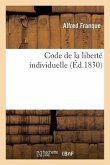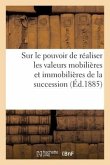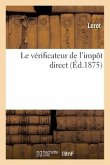During the past few years, there has been an increase in cases of civil litigation for reparation of damages brought on by wars, crimes against humanity, slavery and colonisation. "Historical injuries and injustices" are the terms used by claimants in iedividual and class action lawsuits when seeking restitution, reparations or settlement for damages resulting from State policy - the spoliation of Jewish property during World War II, forced sterilisation of colonised peoples, occupation of Native people's land, for example. Reparations for war damages, official apologies and acts of repentance have existed in the past. Following the Nuremberg trials, the international criminal justice system grew and developed. And now, private law is being called upon to make restitution for historical debts.But what really matters to claimants in such cases: the financial settlement or acknowledgment of the crime? Can historical offences be repaired? Can a monetary settlement act as reparation? Can it help victims fied peace and appeasement? Antoine Garapon traces the rise of civil responsibility lawsuits which aim to obtain reparation for historical crimes. He describes the beginnings of these actions in the United States, with the reparation of Holocaust victims, and he highlights the problems and limitations of engaging in such actions, whose repercussions can be likened to opening Pandora's box.This is a timely contribution to the ongoing French debate about colonisation and historical repentance. It is also a highly original examination of a new way of healing old wounds - but is this new way simply an expression of the commercialisation and Americanisation of justice? Can such reparations open the way to reconciliation? And what do they reveal about our society's conception of what is just? The role of money in contemporary justice is thoroughly analyzed in this up-to-date study. In view of certain crimes, a settlement may seem outrageous, even obscene. But could this be an oversimplification?Antoine Garapon is a magistrate, the founder of the Institut des Hautes Etudes sur la Justice and a member of the editorial board of the French magazine Esprit. He is the author of Le Gardien des promesses (1996), Bien juger (2001), Des crimes qu'on ne peut ni punir ni pardonner (2002) and Juger en Amérique et en France (2003).
Hinweis: Dieser Artikel kann nur an eine deutsche Lieferadresse ausgeliefert werden.
Hinweis: Dieser Artikel kann nur an eine deutsche Lieferadresse ausgeliefert werden.








